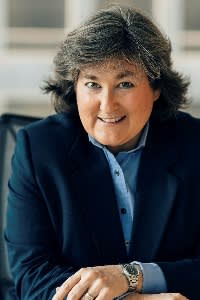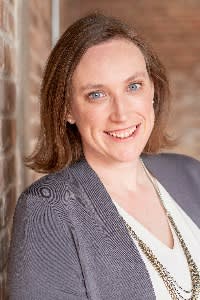When Erika Karp started off her MBA in 1989, the term “sustainable development” had barely entered the company lexicon — allow by itself the business school curriculum.
But even right now, with sustainability at the prime of the commercial agenda, Karp — who went on to uncovered the effect expenditure group Cornerstone Cash — thinks business schools have to do extra to combine social and environmental subject areas into their programs.
She claims one element of her Columbia Business enterprise College MBA was remarkably relevant to her function in sustainable finance, even again then. “One of the finest programs was called controlling innovation,” recollects Karp, who now operates as main effect officer at Pathstone, the US household office that this calendar year acquired her agency. “The term the professor used was ‘frame-breaking change’. And what I saw in the environment of sustainability and effect investing was possibly body-breaking change.”

She argues that ESG (environmental, social and governance) investing is an alternative lens via which to assess potential investments. “This is a new paradigm,” she claims. “It’s about pragmatism and utilizing an enhanced analytical approach to have an understanding of investing.”
Like Columbia, UCLA Anderson College of Administration available no sustainability-concentrated programs when Dave Gallon embarked on his MBA there in 2001. But for Gallon, now main operating officer at MoceanLab — a Los Angeles-dependent sustainable mobility laboratory introduced by carmaker Hyundai in 2019 — the school’s typical solution matched his want to pursue environmental and social justice professionally.
“I chose it for the reason that of their openness to the exploration of new subject areas,” he claims. He also liked the school for the reason that, as opposed to all those that prioritise expenditure bankers whose salaries boost their rankings, it was interested in accepting pupils from all walks of lifetime (Gallon was formerly in training).
In his operations course, Gallon was launched to the concept of sustainable profitability. “You have to pull environmental impacts into the being familiar with of a system that is designed for lengthy-term returns,” he claims. “And irrespective of whether in finance, accounting or system, the professors would convey the thought of ethics into the dialogue.”

Jenny McColloch, who is now main sustainability officer at rapid-food stuff chain McDonald’s, was drawn to Yale College of Administration — the place she embarked on her MBA in 2010 — for the reason that of its emphasis on cross-disciplinary considering, notably via the joint management-surroundings degree it introduced in 1982.
“I didn’t do the joint degree for the reason that I presently had an environmental management master’s and bachelors degree,” describes McColloch. “But I chose that school for the reason that of its relationship among the College of Administration and the College of the Atmosphere.”
The innovation class written content has proved remarkably relevant to McColloch’s function at McDonald’s, she claims, citing the company’s attempts to endorse extra sustainable beef creation techniques.
“We have the prospect via our world network to check distinctive programmes with farmers and ranchers in distinctive nations around the world and figure out what is scalable,” she claims. “It’s innovation in a world network and via the lens of sustainability.”
By the time McColloch started off her MBA, the business school landscape had shifted noticeably from the times when Karp and Gallon have been pupils. And considering that then, environmental sustainability and social entrepreneurship have manufactured their way into the curriculum, often driven by university student demand from customers.
Nonetheless, when schools have launched extra class written content on sustainable business, a lot of are available only as electives. The problem has been integrating subject areas these types of as biodiversity and social company into core programs, these types of as operations and finance.
This is essential, argues Karp, who claims that schools ought to be educating sustainability in a way that aids change capitalism to a extra regenerative, inclusive financial model. “You simply cannot do that with no just about every of the [core MBA] disciplines,” she claims.
Gallon also believes schools ought to do extra to enable pupils make connections among core disciplines and social and environmental aspects.
“If you are a finance human being going to function on Wall Road, you will need to have an understanding of that the organizations you are investing in are multi-faceted, human organisations,” he claims. “Not sufficient people get that holistic check out.”
Educational facilities are also being criticised for curriculum written content that is however dependent around the ‘shareholder primacy’ model of capitalism and the pursuit of small-term returns fairly than the lengthy-term approaches essential to deal with concerns these types of as inequality or local weather change.
Karp believes schools that are unsuccessful to go away from this solution are putting their individual business model at possibility, especially as technology would make it possible to do the teamwork and networking that are crucial areas of the business school expertise.
“Those items are much easier to do these times outdoors the school surroundings,” she claims. “So if schools’ considering is outmoded, then they will turn out to be irrelevant.”





More Stories
Top Home Business Ideas – 3 Methods For Building Website Back-Links
Importance of Family Business Management
Coffee Vending Machine – How to Make Them Successful Business Ideas